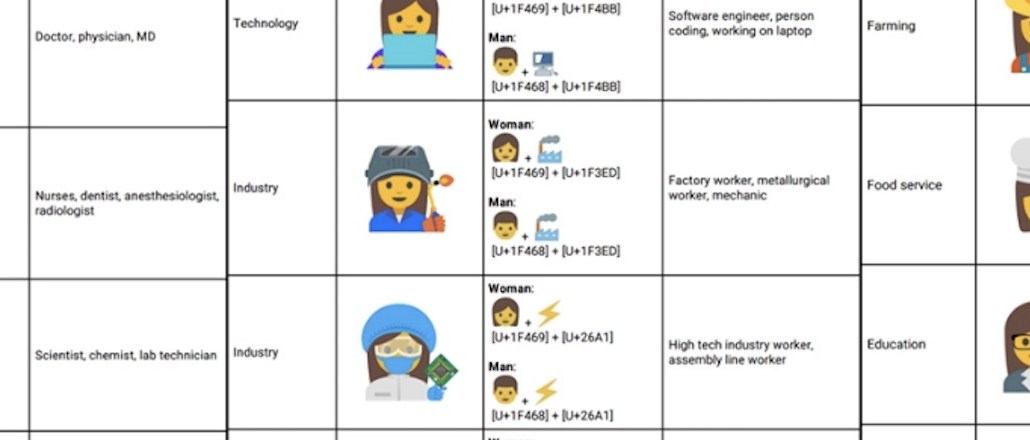Last chance to save on Digiday Publishing Summit passes is February 9

Emojis are replacing Barbies as the battleground where the fight over the portrayal of women is being waged.
A group of Google employees is pushing for 13 new emojis to be approved with a “goal of highlighting the diversity of women’s careers and empower girls everywhere,” according to their proposal submitted to the Unicode Consortium this week.
“No matter where you look, women are gaining visibility and recognition as never before,” the developers said in a its proposal. “Isn’t it time that emoji also reflect the reality that women play a key role in every walk of life and in every profession?”
As of now, emojis depicting women are overwhelmingly stereotypical: There’s nail painting and hair grooming; there’s flamenco dancing and twin burlesque bunnies. Men, meanwhile, are cops and doctors and athletes, as Always pointed out as part of their “Like a Girl” campaign. Google’s proposal includes doctors, farmers, graduates and professors for both sexes. There’s even a David Bowie tribute emoji.
Making unicode emoji less basic with 13 true-to-life representations of professional women: https://t.co/aSOBFkKMGa pic.twitter.com/BfKMSSXgpg
— Google Design (@GoogleDesign) May 11, 2016
Unicode Consortium is currently mulling which emojis will be allowed in its next batch, due to arrive on people’s phones in mid-2017. However, the Googlers might have an advantage since the Consortium’s president, Mark Davis, is also a Google employee.
More in Marketing

In Q1, marketers pivot to spending backed by AI and measurement
Q1 budget shifts reflect marketers’ growing focus on data, AI, measurement and where branding actually pays off.

GLP-1 draws pharma advertisers to double down on the Super Bowl
Could this be the last year Novo Nordisk, Boehringer Ingelheim, Hims & Hers, Novartis, Ro, and Lilly all run spots during the Big Game?

How food and beverage giants like Ritz and Diageo are showing up for the Super Bowl this year
Food and beverage executives say a Super Bowl campaign sets the tone for the year.





